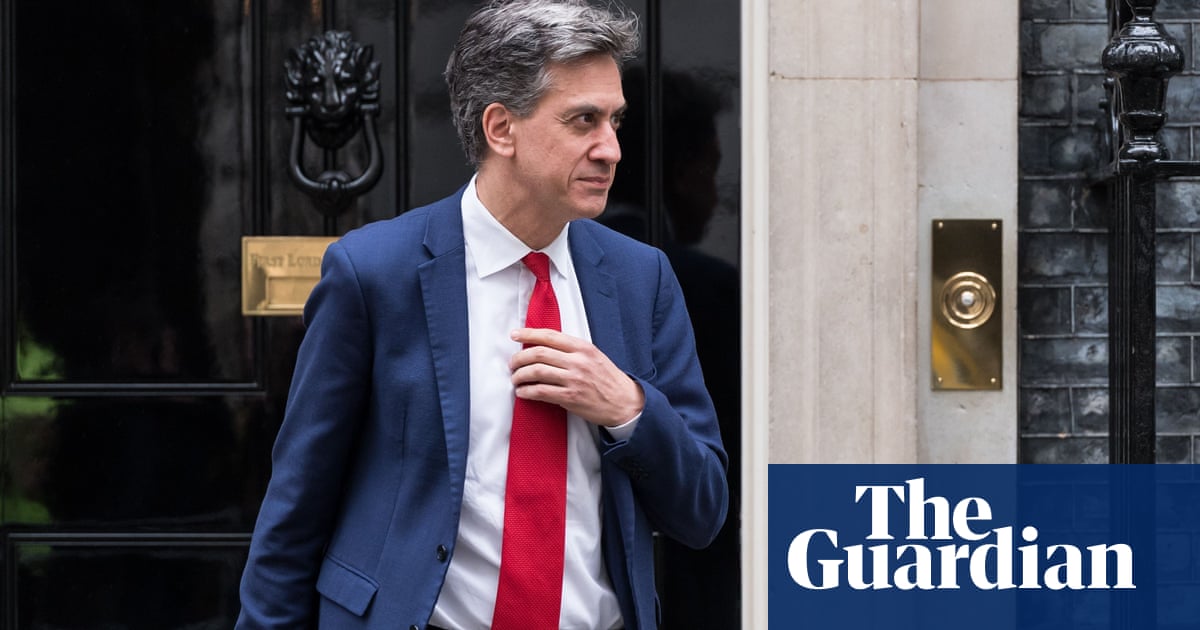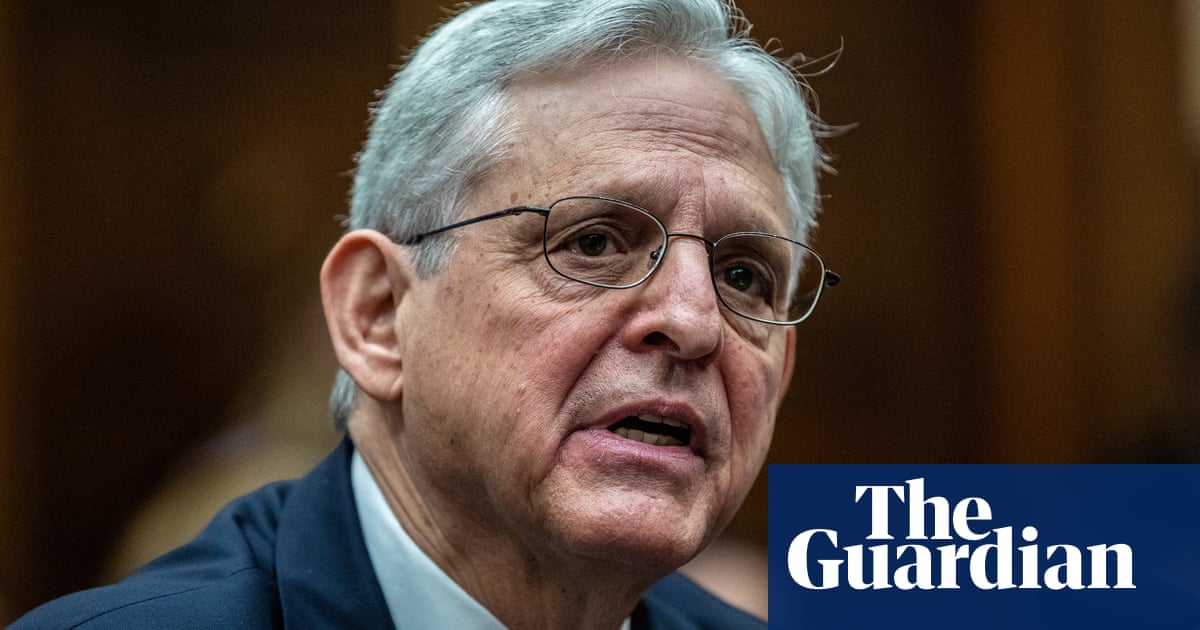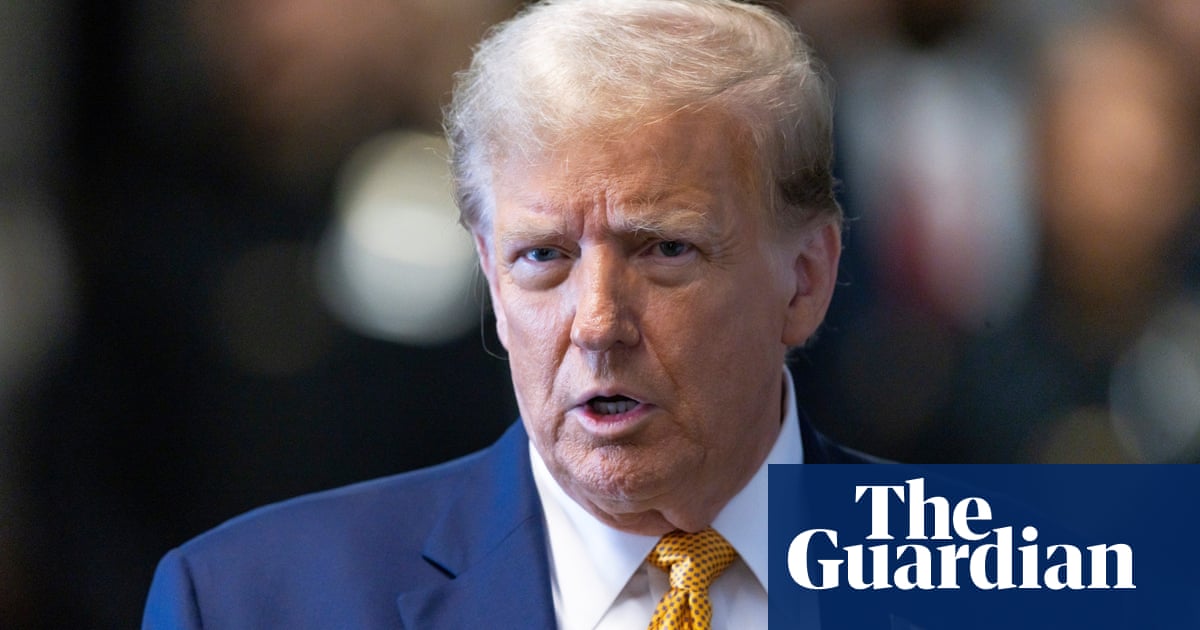Ed Miliband is facing his first key test on Labour’s ambitions for global climate leadership, with a crucial decision looming on how far and how fast to cut the UK’s greenhouse gas emissions.
The energy secretary is preparing a new international pledge for the UK to cut carbon sharply in the next decade, but could face opposition within the cabinet.
Experts and campaigners told the Guardian the UK should make substantial cuts to carbon in the next 10 years, compared with its existing pledge. Lord Stern, the economist, said the new target should be a cut of at least 78% in carbon emissions, compared with 1990 levels, by 2035.
That is a 10 percentage point increase on the existing pledge, under the Paris climate agreement, to cut emissions by 68% by 2030 – a pledge made by Boris Johnson in 2021 but which the UK is well off track in meeting.
Stern said: “A strong transition [to a low-carbon economy] and the investment and innovation which drives it is crucial to our own growth. If we commit and deliver, as we can, we will establish a much more attractive growth story than the dirty destructive models of the past. And we can show the way internationally.”
Mike Hemsley, the deputy director of the Energy Transitions Commission thinktank, agreed that 78% should be the key figure. “This is a reasonable number. We have seen an acceleration [of the move to clean energy] in the power sector, but there has not been much progress on buildings, which is needed,” he said.
Friends of the Earth also agreed that a pledge of 78% cuts would be on target. Mike Childs, head of policy, said: “We’d argue that the urgent need to prevent climate breakdown spiralling out of control requires the deepest cuts possible. This must focus on cleaning up our act at home, because a significant proportion of our cuts to date have come from outsourcing manufacturing abroad rather than reducing emissions across sectors in the UK. But it must be matched with investment in a fair, green transition that protects jobs and communities.”
The question of what the pledge should be must be decided urgently. The prime minister, Keir Starmer, promised at the UN general assembly last month to present the UK’s next emissions-cutting pledge at the forthcoming UN climate summit, Cop29, in Azerbaijan from 11 November.
That is significantly in advance of the February deadline for submitting such plans – known as NDCs (nationally determined contributions) – to the UN, showing the UK’s determination to take a lead on the issue.
Before the autumn budget at the end of this month, the Climate Change Committee – the independent advisers to the government – will present their deliberations on what the headline emissions pledge should be. After that, Miliband and his advisers will have just over a fortnight to prepare at least a draft of the NDC, for presentation to other governments at Cop29.
Miliband does not have to take the CCC’s advice. The Guardian has learned that the Department for Energy Security and Net Zero is working on its own headline number on emissions cuts, independently of the CCC’s deliberations.
The question of whether to push for tougher targets, or to hold back on the grounds that other countries should do more, is likely to be a key tussle within the Labour cabinet.
Miliband is pushing for greater ambition, and has the support of the foreign secretary, David Lammy, who views the climate crisis as a threat to national security and believes the UK must take a leading role in tackling it.
Starmer has also staked his personal reputation among world leaders on the issue. At the UN last month, he told other heads of state: “We are returning the UK to responsible global leadership … because it is right, but also because it is plainly in our self-interest.”
He put the climate at the heart of that aim. “Under my leadership, the UK will lead again, tackling climate change, at home and internationally and restoring our commitment to international development,” he said. “The threat of climate change is existential and it is happening in the here and now. So we have reset Britain’s approach. “
But the Guardian understands that there are qualms among some at the top of government, who are more cautious on net zero. The Tories, since Rishi Sunak made a U-turn on climate action a year ago, have taken the line that the UK should take a back seat and let other countries forge ahead in the transition to a low-carbon economy. Both of the party’s leadership contenders, Kemi Badenoch and Robert Jenrick, have taken hostile positions on the race to net zero and would make it a main attack line as leader. Some Labour strategists fear this could be a vulnerability for the party.
Labour’s launch of GB Energy was in part intended to quell such fears, by presenting a future in which green jobs take over from the fossil fuel-dependent economy.
However, pushing for stronger action on the climate is likely to require more investment in the UK’s green infrastructure. Whether that is forthcoming will depend on Rachel Reeves, chancellor of the exchequer, when she presents her first autumn budget on 30 October.
Stern believes the path to the economic growth Reeves seeks must lie through low-carbon innovation. He said: “Investment with strong returns, financed long term at moderate cost, is good for the public finances as well as growth.”



